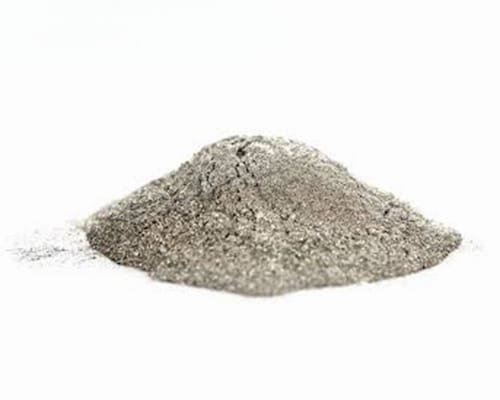Introduction
Alloy 188 Powder (UNS R30188) is a cobalt-based superalloy powder engineered for exceptional high-temperature strength, oxidation resistance, and thermal stability. Known commercially as Haynes 188–type alloy, this material combines cobalt, nickel, chromium, and tungsten to deliver reliable mechanical performance in extreme thermal environments.
In powder form, Alloy 188 is widely used in additive manufacturing (AM), hot isostatic pressing (HIP), and thermal spray applications for aerospace, gas turbine, and industrial high-heat components. Its ability to retain strength and resist scaling at elevated temperatures makes it a preferred choice for combustion systems and hot-section parts.
Detailed Description
Alloy 188 (UNS R30188) is primarily composed of cobalt as the base element, with controlled additions of nickel, chromium, tungsten, and trace elements to enhance solid-solution strengthening and oxidation resistance.
Typical nominal composition (wt%):
Co: Balance
Ni: ~20–24%
Cr: ~20–24%
W: ~13–16%
Minor elements: Fe, Mn, Si, C (controlled)
Spherical Alloy 188 Powder is generally produced by gas atomization to ensure:
Highly spherical morphology for superior flowability
Controlled particle size distribution (PSD)
Low oxygen content
Uniform microstructure
These characteristics are critical for laser powder bed fusion (LPBF), directed energy deposition (DED), and thermal spray systems. High-temperature strength is maintained through solid-solution strengthening by tungsten and chromium, while chromium provides oxidation and hot corrosion resistance.
Alloy 188 demonstrates excellent mechanical integrity at temperatures approaching 1000°C, with good ductility compared to many nickel-based superalloys.
Applications
Alloy 188 Powder (UNS R30188) is commonly used in:
Gas turbine combustor components
Afterburner and exhaust system parts
High-temperature liners and transition ducts
Additive manufacturing of aerospace hot-section components
Thermal spray coatings for oxidation resistance
Industrial furnace hardware
Energy and power generation systems
Its stability under cyclic thermal loading makes it suitable for components exposed to repeated heating and cooling cycles.
Technical Parameters
| Parameter | Typical Value / Range | Importance |
|---|---|---|
| Standard | UNS R30188 | Identifies alloy specification |
| Purity / Chemistry | Controlled per alloy spec | Ensures mechanical and oxidation performance |
| Particle Size | 15–45 µm / 45–106 µm (custom) | Matches AM or spray process requirements |
| Morphology | Spherical (gas atomized) | Improves flow and packing density |
| Apparent Density | 4.5–5.5 g/cm³ (varies by PSD) | Affects build consistency |
| Melting Range | ~1315–1410°C | Defines processing parameters |
Custom PSD ranges and batch certifications are available for aerospace-grade applications.
Comparison with Related High-Temperature Alloys
| Material | Key Advantage | Typical Application |
|---|---|---|
| Alloy 188 (R30188) | Superior oxidation resistance at high temperature | Combustion chambers & liners |
| Inconel 718 | High strength & precipitation hardening | Turbine disks |
| Hastelloy X | Good fabricability & oxidation resistance | Furnace components |
| Stellite Alloys | Excellent wear resistance | Hardfacing coatings |
Compared to precipitation-hardened nickel alloys, Alloy 188 relies on solid-solution strengthening, offering better stability under prolonged high-temperature exposure.
FAQ
| Question | Answer |
|---|---|
| Is Alloy 188 Powder suitable for LPBF? | Yes, spherical gas-atomized powder is compatible with LPBF systems. |
| Can particle size distribution be customized? | Yes, PSD can be tailored to specific additive manufacturing or spray processes. |
| Is it suitable for continuous operation above 900°C? | Yes, it is designed for high-temperature service environments. |
| Does it offer good oxidation resistance? | Chromium and tungsten additions provide strong resistance to scaling. |
| Is certification available? | Yes, material test reports (MTR) and chemical analysis certificates can be provided. |
Packaging
Our Alloy 188 Powder (UNS R30188) are meticulously tagged and labeled externally to ensure efficient identification and maintain high standards of quality control. We take great care to prevent any potential damage during storage and transportation, ensuring the powder arrives in perfect condition.
Conclusion
Alloy 188 Powder (UNS R30188) delivers reliable high-temperature strength, oxidation resistance, and structural stability for aerospace, energy, and industrial applications. With spherical morphology, controlled chemistry, and customizable particle size distribution, it supports advanced additive manufacturing and coating technologies.
For detailed specifications and a quotation, please contact us at sales@thinfilmmaterials.com.





Reviews
There are no reviews yet.